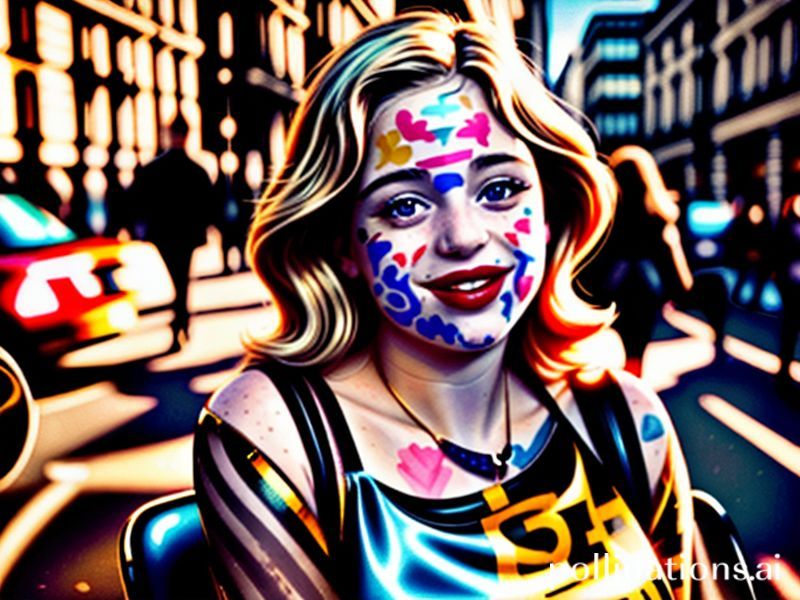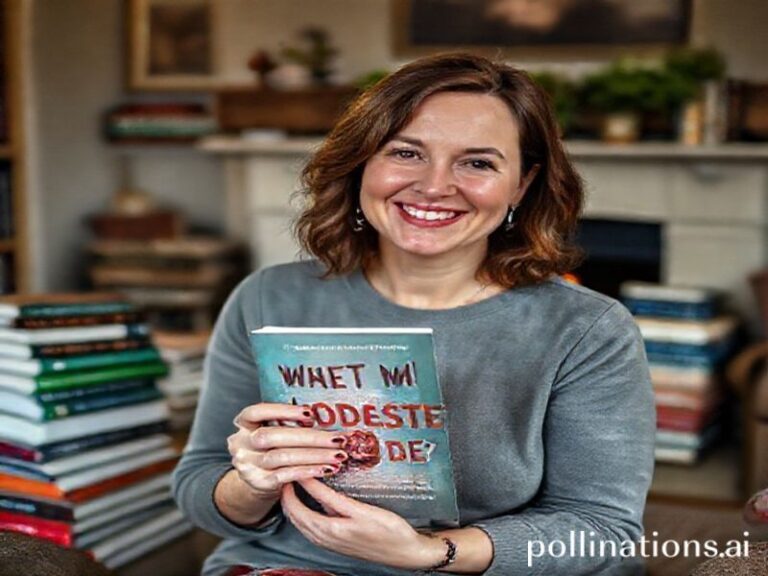Ellie Goldstein’s Smile: How One Face Briefly Hacked Global Capitalism
Ellie Goldstein and the Global Reinvention of the Face
The planet now contains roughly eight billion faces, and—thanks to algorithms that can spot a dimple from orbit—every single one is auditioning for a role it never asked for. Into this hyper-lit stage strode Ellie Goldstein, a teenager from Ilford, East London, who, by the simple act of smiling for Gucci’s Mascara L’Obscur campaign in 2020, managed to send the world’s marketing departments, disability-rights caucuses, and glass-ceiling accountants into a synchronized swoon. Global significance? Only if you believe that international capitalism occasionally likes to pretend it has a conscience.
Goldstein, who has Down’s syndrome, became the first model with the condition to front a luxury beauty campaign. Cue headlines from Jakarta to Johannesburg trumpeting “A New Beauty Canon,” which is ironic because the old beauty canon—thin, symmetrical, vaguely bored—still pays the bills. Still, for roughly 72 hours, a face that didn’t fit the template trended harder than Bitcoin’s latest cardiac event. Stock photos of Ellie were beamed onto Tokyo subway screens, repurposed in Lagos bus shelters, and cropped into TikTok thumbnails from São Paulo to Seoul. Somewhere in Davos, a consultant billed €3,000 an hour to explain that “authenticity” now moves units.
Let’s zoom out, shall we? The global disability economy—products, services, and the ever-expanding empathy sector—is valued north of $13 trillion. That’s more than the GDP of every Nordic country combined, plus enough left over for a round of aquavit. Brands that once airbrushed pores into oblivion now court what the industry politely calls “visible diversity,” a phrase that sounds like a tax loophole for enlightenment. Gucci’s parent, Kering, simultaneously sells $2,500 handbags and promises carbon neutrality by 2050, a target so distant it might as well be scheduled for the next ice age. Somewhere in the spreadsheet ballet, Ellie’s face appears on the ESG slide, right between “sustainable python” and “offsetting private-jet guilt.”
Of course, the international press corps loves a tidy redemption arc. Western outlets celebrated the campaign as proof that inclusion had finally gone haute; meanwhile, Chinese social media lit up with debates about whether Down’s syndrome was being “romanticized” or if Western brands were simply importing another moral fad. Indian influencers weighed in with reels on “special needs chic,” and Brazilian meme factories did what they do best—turned the whole thing into a carnival float of irony. In the end, the discourse became a global buffet: everyone took the portion that confirmed their priors and left the rest for the dogs.
Yet the ripple effects are harder to mock. Within a month of the campaign’s launch, traffic to the UK’s National Down’s Syndrome Society website spiked 400 percent. In Mexico, a small fashion label pivoted to an inclusive casting call; in South Africa, a nonprofit reported a 30 percent uptick in donations earmarked for job-training programs. Even the cynic must concede that capital, when properly embarrassed, can occasionally clear its throat and cough up something resembling progress—before it rushes off to monetize the next moral panic.
Goldstein herself, bless her, seems cheerfully oblivious to the geopolitical chess match being played on her cheekbones. She told Vogue (via mum-translator) that she just “loves lipstick.” Somewhere, a thousand strategists frantically scribbled “authentic joy” into their brand bibles. Meanwhile, back in Ilford, the local kebab shop hung a signed campaign poster next to the chili-sauce bottles—proof that even the most earth-shattering revolutions can smell faintly of garlic mayo.
Conclusion (because the editor insists we land this plane): In a world where faces are data points and self-worth is denominated in likes, Ellie Goldstein’s smile briefly hacked the algorithm. Yes, the same machine will soon chew her up and spit out the next micro-trend—perhaps “neurodivergent nail art” or “wheelchair haute couture.” But for one planetary spin, a 19-year-old reminded the species that humanity sometimes leaks through the cracks of the marketplace. And if that leak can be packaged, shipped, and sold back to us at a 500 percent markup—well, that’s globalization, baby. Try not to choke on the glitter.







